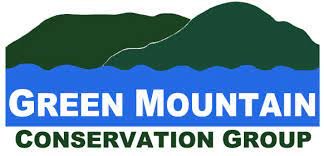Green Mountain Conservation Group Launches Winter Road Salt Awareness Campaign

[ad_1]
EFFINGHAM – Green Mountain Conservation Group has announced the launch of a public awareness program that addresses the threats that the application of winter salt poses to the environment, the economy and the health of its New Hampshire citizens. The “Jumping Responsibly” campaign will focus on a multitude of ways to reduce salt use while keeping roads, driveways, parking lots and sidewalks safe during New Hampshire’s long winter.
“The facts are present,” said Green Mountain Conservation Group CEO Matt Howe. “New Hampshire’s freshwater lakes, streams, wetlands and groundwater are getting saltier every year, and the main cause of this is the 400,000 tonnes of salt that is applied every winter to our car parks, sidewalks. “Urban roads, interstates, state highways, and other surfaces. Salt is toxic to aquatic life and plants, corrodes our bridges and vehicles, and when it impregnates our water supply, endangers human health.” .
Radio, newspapers, and social media posts will direct the public to saltresponsibly.com to learn about the damage caused by winter salt applications and provide guidance on how to reduce the amount of salt that contaminates roads and supplies. New Hampshire water.
“The goal of this campaign is not to blame,” Howe added. “We recognize that safety is the number one priority for road maintenance in the winter, and until the day that practical alternatives are widely available, the use of winter salt will continue. The real problem is the excess. “Reducing waste and increasing the efficient use of salt are the key solutions. We seek a broader public understanding of the problem and share information on the steps that everyone can take to make a difference.”
For nearly two decades, Green Mountain Conservation Group has been conducting comprehensive water quality monitoring at dozens of sites in the Ossipee Basin. Earlier this year, Green Mountain Conservation Group Water Quality Coordinator Jill Emerson and her team of AmeriCorps members and community volunteers released a report summarizing the last 15 years of collection. of data.
“What’s alarming,” Emerson notes, “is that there has been a significant increase in salinity levels in 85 percent of the sites we test, with surface water readings at several sites posing a potential threat to the environment. and the organisms that live there. ”
Green Mountain Conservation Group data reflects statewide findings. The New Hampshire Department of Environmental Services currently recognizes 50 NH water bodies as “chloride-affected” under federal standards under the Clean Water Act. In 2008, only 18 bodies of water in New Hampshire did not meet the standards of the Clean Water Act.
Commercial salt applicators are responsible for most of the winter salt applied to travel surfaces in New Hampshire. Green Mountain Conservation Group is partnering with the University of New Hampshire Technology Transfer Center to promote and offer the Green Hampton Green SnowPro certification program from the New Hampshire Department of Environmental Services.
This program is the first in the country to train and certify commercial salt applicators on the latest methods and technologies to safely reduce the use of salt. Municipalities are the second largest contributor of winter salt applications in the state and will soon be eligible for Green SnowPro certification along with the thousands of commercial salt applicators that are already part of the program.
Visitors to the campaign website will learn how a municipality in New Hampshire, Madison City, has recently invested in a brine dispenser. Brine, a process that liquefies salt before being applied to roads and other surfaces, has been found to be more effective at melting ice and snow while reducing salt applications by more than 50. per cent. In the face of rising costs (commercial salt prices are at least 25 per cent higher for most New Hampshire cities this winter), brine also offers a significant financial incentive.
“The Green Mountain Conservation Group’s mission is to protect the Ossipee Basin and the Ossipee Aquifer,” said Howe. “However, we would like this message to spread across the state and beyond our borders. Everyone in New Hampshire lives in a watershed. As citizens of a watershed, we all have a responsibility to keep in mind that pretty much everything we add to the earth ends up in our water. “





